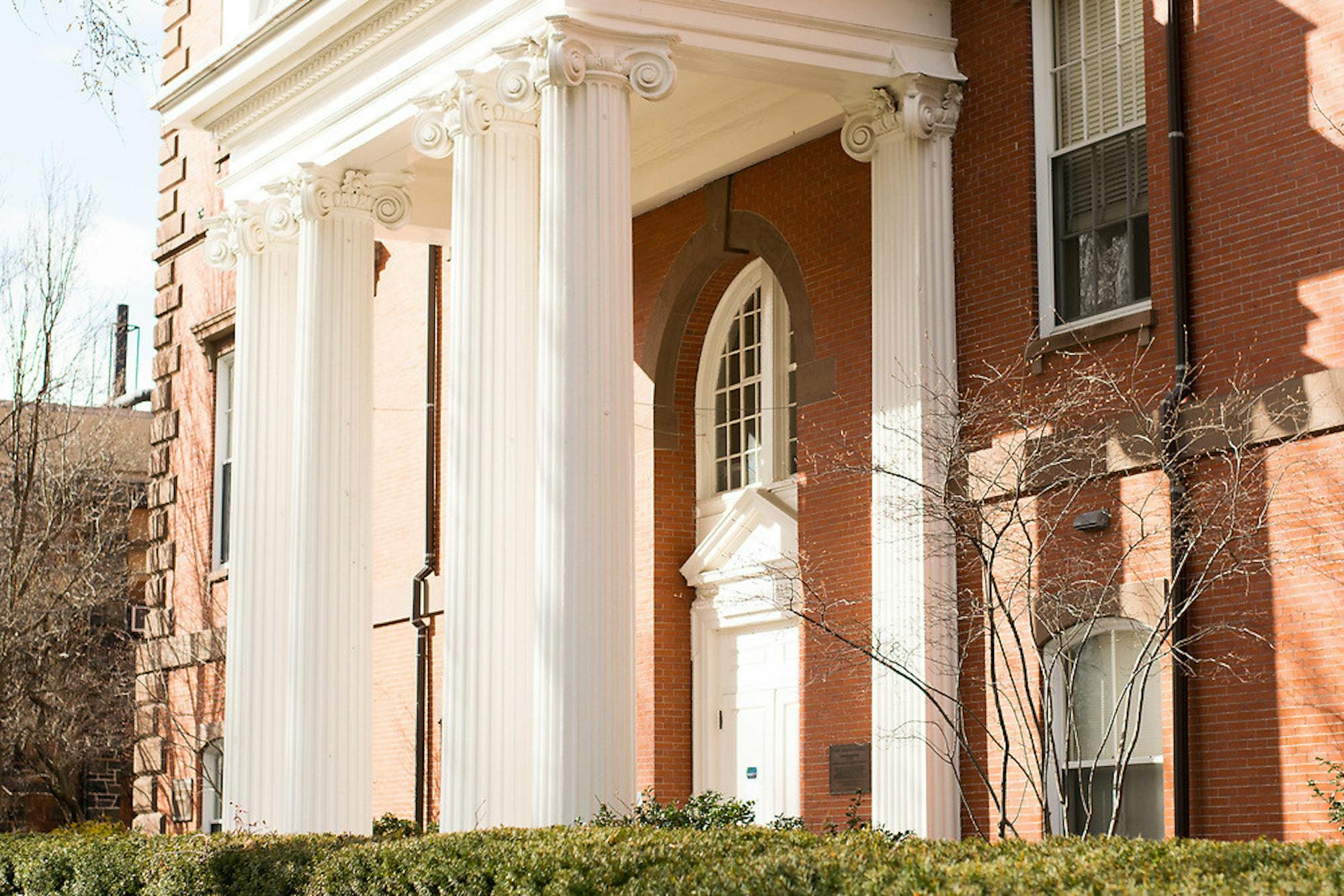The Dean of Student Affairs Office released itsannual report detailing community standards violations of the 2020–2021 academic year last week, including 2,058 alleged violations of the Fall 2020 Campus Guide. Tufts' current report lists 2,056 violations due to an error and will be updated shortly, according to Lindsay Ferguson, Tufts’ assistant director of community standards. The document, which summarizes complaints against undergraduate students, graduate students and student organizations across the School of Arts & Sciences, the School of Engineering and the School of the Museum of Fine Arts, disclosed 3,994 allegations of overall misconduct during the 2020–21 academic year.
The number of misconduct allegations was a sharp increase over previous years, in part due to many reported violations of Tufts’ COVID-19 policies. In total, 51.5% of reported campus conduct violations were attributed to alleged pandemic-related noncompliances.

Instances of COVID-19-related misconduct were categorized in the report as being violations of the Fall 2020 Campus Guide, a rulebook which provided students with conduct guidelines related to COVID-19 policies. Reported violations were broken down into 15 categories. These complaints included 778 alleged failures to comply with testing protocols and 513 alleged violations of face covering requirements, as well as 234 complaints of alleged large gatherings.
Since some of the 1,482 alleged infractions were reported more than once, ultimately 349 unique incidents were reviewed by the university, according to administrators in the Office of Community Standards.
“There were some students and student organizations about whom our office received more than one report,” Ferguson wrote in an email to the Daily.
There were about 1,075 alleged violations of the Fall 2020 Campus Guide that resulted in one of four disciplinary sanctions: a warning, a reprimand, disciplinary probation or suspension. Student organizations which were found responsible for a COVID-19 violation received one of twodisciplinary sanctions: a revocation of recognition or disciplinary probation.
Fourteen students were sanctioned to disciplinary suspension for conduct violations, including those not related to COVID-19. No students were expelled for any violation of campus policies.
“Sanctions are determined based on multiple factors including: the policy or policies violation for which the student is found responsible, any aggravating or mitigating circumstances, and the student or student organization’s prior disciplinary history,” Ferguson wrote.
To determine sanctions for those found to have violated the Fall 2020 Campus Guidelines, Ferguson explained that students meet with either a staff member from the Office of Community Standards, Office of Residential Life or the Committee on Student Conduct. Sanctions were then given at the discretion of the offices based on evidence pertaining to the case.
University officials said that they believe the evidence gathered against reprimanded students was enough to justify the disciplinary actions doled out.
“Tufts’ standard of proof to determine responsibility is preponderance of evidence, meaning what more likely than not occurred,” Ferguson wrote.
Of the 2,058 alleged COVID-19-related violations, 30% of incident respondents were found not to be responsible for the complaints. This percentage does not include cases that were resolved through non-disciplinary action or through the Pandemic Amnesty Process, nor those that are still pending.
Over 99% of cases were resolved without the use of expulsion, suspension or other separation from the university. Most COVID-19 conduct violations were resolved through disciplinary probation, warnings or reprimands.
“As noted in the report, the vast majority of these complaints were addressed with education and reminders about why compliance with the university’s health guidelines is so important,” Patrick Collins, the executive director of media relations at Tufts, wrote in an email to the Daily.
The number of complaints alleging general behavior violations, one of the categories of misconduct recorded in the report, increased significantly during the 2020–21 academic year compared to previous years, in large part due to COVID-19-related violations. General behavior violations include misconduct related to the university’s alcohol and drug policy, fire and life safety hazards and noise complaints.
This upward trend in complaints alleging general behavior violations, included in which are Fall 2020 Campus Guide violations, has been happening for several years, with complaints totaling 484 in 2016–17, 818 in 2017–18, 1,327 in 2018–19, 1,477 in 2019–20 and 3,567 in 2020–21.
According to Collins, this increase in complaints was “not surprising” to the administration.
“Members of our community last year were understandably concerned about compliance with COVID-19 health and safety protocols out of concern for their own and others’ health and the ability of the university to continue in-person operations,” he wrote.







